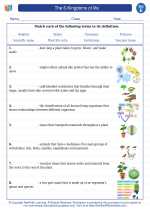The 6-Kingdoms of life -> molecules
Molecules
A molecule is a group of two or more atoms that are chemically bonded together. These atoms can be of the same element or different elements.
Structure of Molecules
Molecules are composed of atoms that are held together by chemical bonds. The arrangement of atoms in a molecule is known as its molecular structure.
Types of Molecules
There are two main types of molecules:
- Diatomic Molecules: These are molecules composed of two atoms of the same element bonded together. Examples include oxygen (O2) and hydrogen (H2).
- Compound Molecules: These are molecules composed of atoms of different elements bonded together. Examples include water (H2O) and carbon dioxide (CO2).
Properties of Molecules
Molecules have various properties, including:
- Mass: The total mass of a molecule is the sum of the masses of its constituent atoms.
- Shape: The arrangement of atoms in a molecule determines its shape, which can affect its properties and interactions.
- Polarity: Some molecules have polar bonds, meaning one end of the molecule has a slight positive charge while the other end has a slight negative charge.
Chemical Reactions
During chemical reactions, molecules can break apart (decomposition) or combine with other atoms to form new molecules (synthesis).
Importance of Molecules
Molecules are essential to life and play a crucial role in various biological, chemical, and physical processes. Understanding molecules helps in fields such as medicine, environmental science, and materials science.
.◂Science Worksheets and Study Guides Fifth Grade. The 6-Kingdoms of life
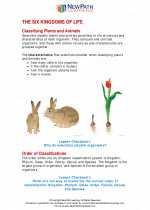
 Activity Lesson
Activity Lesson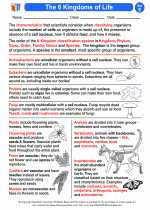
 Worksheet/Answer key
Worksheet/Answer key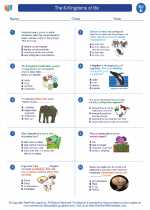
 Worksheet/Answer key
Worksheet/Answer key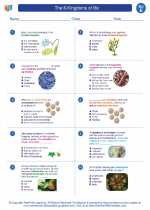
 Worksheet/Answer key
Worksheet/Answer key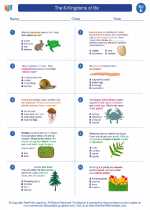
 Worksheet/Answer key
Worksheet/Answer key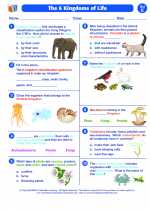
 Vocabulary/Answer key
Vocabulary/Answer key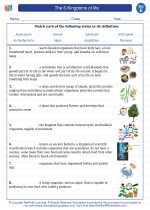
 Vocabulary/Answer key
Vocabulary/Answer key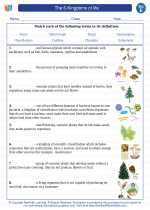
 Vocabulary/Answer key
Vocabulary/Answer key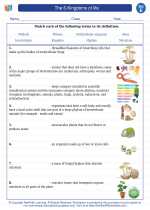
 Vocabulary/Answer key
Vocabulary/Answer key